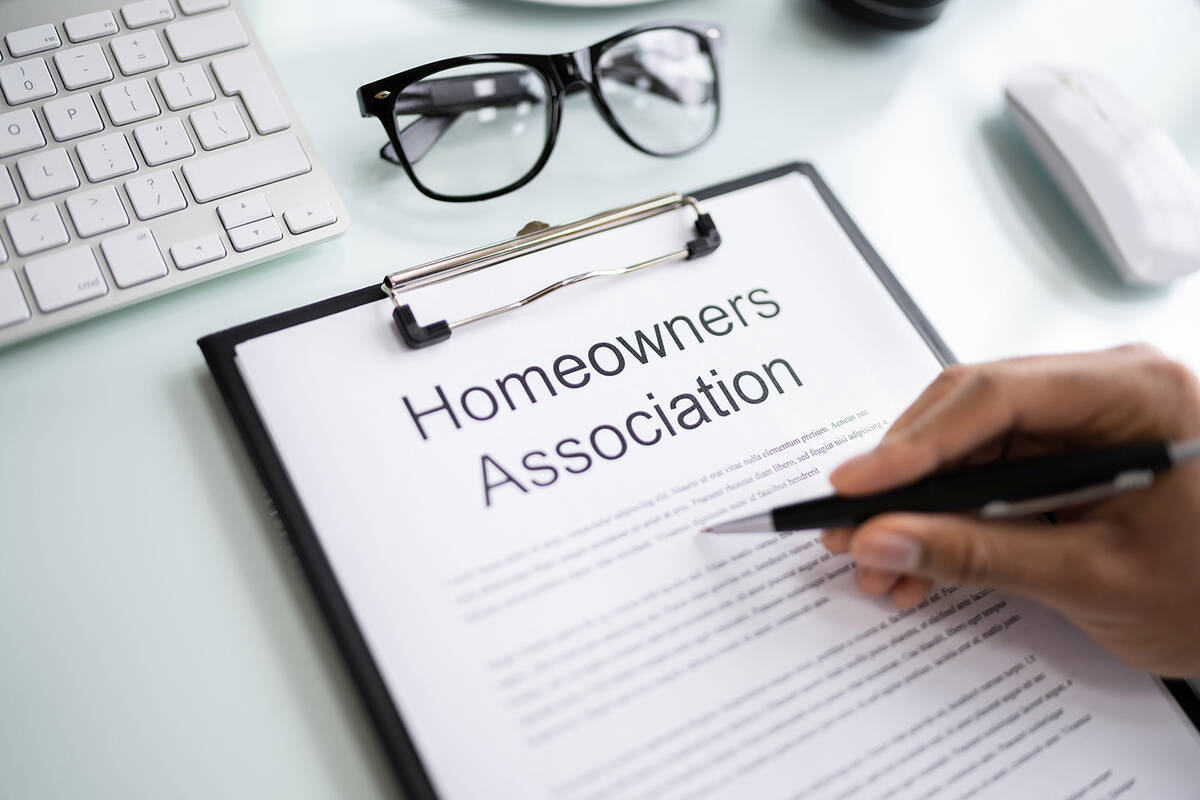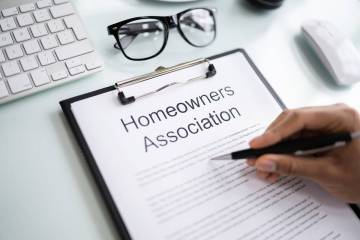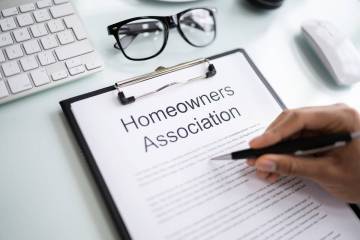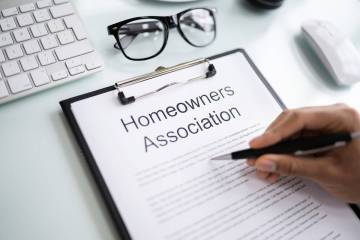Expect higher HOA assessments in 2023
NOTE: In a recent column, I did not properly clarify the approval of the annual budget. I had accidentally noted that in Nevada Revised Statute 116.31073 (3c) that there was a 5 percent cap.
This law only pertains to the maintenance, repair, restoration and replacement of security walls. It does not pertain to the annual operating budget.
Section NRS 116.31151 (3) pertains to the annual budgets being sent to the owners for ratification or rejection by the homeowners. Within 60 days after the adoption of any proposed budget, the board shall provide a summary of the proposed budget to each owner and shall set a date for a meeting of the owners to consider ratification of the budget, not less than 14 days or more than 30 days after the mailing of the summaries. Unless at that meeting, a majority of the owners or any larger vote specified in the covenants, conditions and restrictions reject the proposed budget, the budget is ratified whether or not a quorum is present.
If the proposed budget is rejected, the last ratified budget by the homeowners must be continued until a new budget is ratified.
Sorry for the confusion.
Q: Our homeowners association has stated they will be increasing our monthly fees by 25 percent starting in January 2023. I reviewed our bylaws and CC&Rs and found that nowhere does it talk about increases or cap percentage. I reached out to the community manager asking him to direct me where this was stated. He responded with the following:
“The association’s bylaws and CC&Rs are silent in regards to a maximum percentage that the board of directors may increase the annual assessment rate. Nevada Revised Statutes are also silent thus the board of directors may increase the assessment to any level that they have deemed necessary to cover the association’s expenses.”
Is this correct? My understanding was that per Nevada NRS 116.3102 &116.311395 fees could only increase by 3 percent per year.
Please advise.
A: Nevada Revised Statute 116.3102 (o) (4) states that the fee must not increase more than 3 percent each year, but this section of the law does not pertain to assessments. If you read more closely the 3 percent maximum pertains to the opening or closing of any file for each year.
NRS 116.3115, .31151 and .31152 outline the requirements in establishing assessments and reserves. Assessments are to be made annually based upon an adopted budget. There are no NRS 116 laws that specifically regulate how much increase in assessments that an association could charge. In most cases, the association’s governing documents regulate the increase.
In your case, according to the community manager, the governing documents for your association do not have any restrictions as to the rate increase for assessments.
According to the U.S. City Average Consumer Price Index, in October 2012, the CPI index was 231.37 and in October 2022, the index was 298.012. This represents a 28.8 percent increase in the cost of living.
Here is the problem. boards do not like increasing assessments, period. Consequently, as the years went by where the CPI ranged around 1.5 percent to 2 percent each year, associations were falling behind as each year ended by not adjusting their assessments.. Now, to make the assessment adjustment, many associations are seeing large increases for 2023. More contractors are charging gasoline prices along with their service fees, which also have increased their labor costs. Forget about the issues of obtaining supplies in a timely manner or finding enough employees to service us.
As a footnote to my readers, expect significant increases in your assessments for 2023.
Q: Our homeowners association recently sent out a notice that it is raising our fees for the second year in a row, and it’s by $6 this time. The community I live in is actually two neighborhoods, and they have different names and very different set-ups. One neighborhood has larger homes with three- and four-car garages and private driveways. The other neighborhood consists of four homes that have a shared driveway (in which we are not allowed to park in the shared driveways or on the street without a paid permit). This increase in fees is a little ridiculous to me since the price for the shared driveways is being raised to $71.50 and the larger homes are only at $45. Is it allowed to have different fees for the same community? An almost $30 difference seems egregious and unfair. Especially because there are no amenities whatsoever.
Thank you for your help in advance.
A: Yes, legally there could be different levels of assessments.. There are many associations with multiple neighborhoods with different assessments depending upon their governing documents, For a more detailed response, you would need to send me a copy of the proposed budgets and that section in the CC&RS pertaining to assessments and shared operating costs.
Barbara Holland is an author and educator on real estate management. Questions may be sent to holland744o@gmail.com.




























